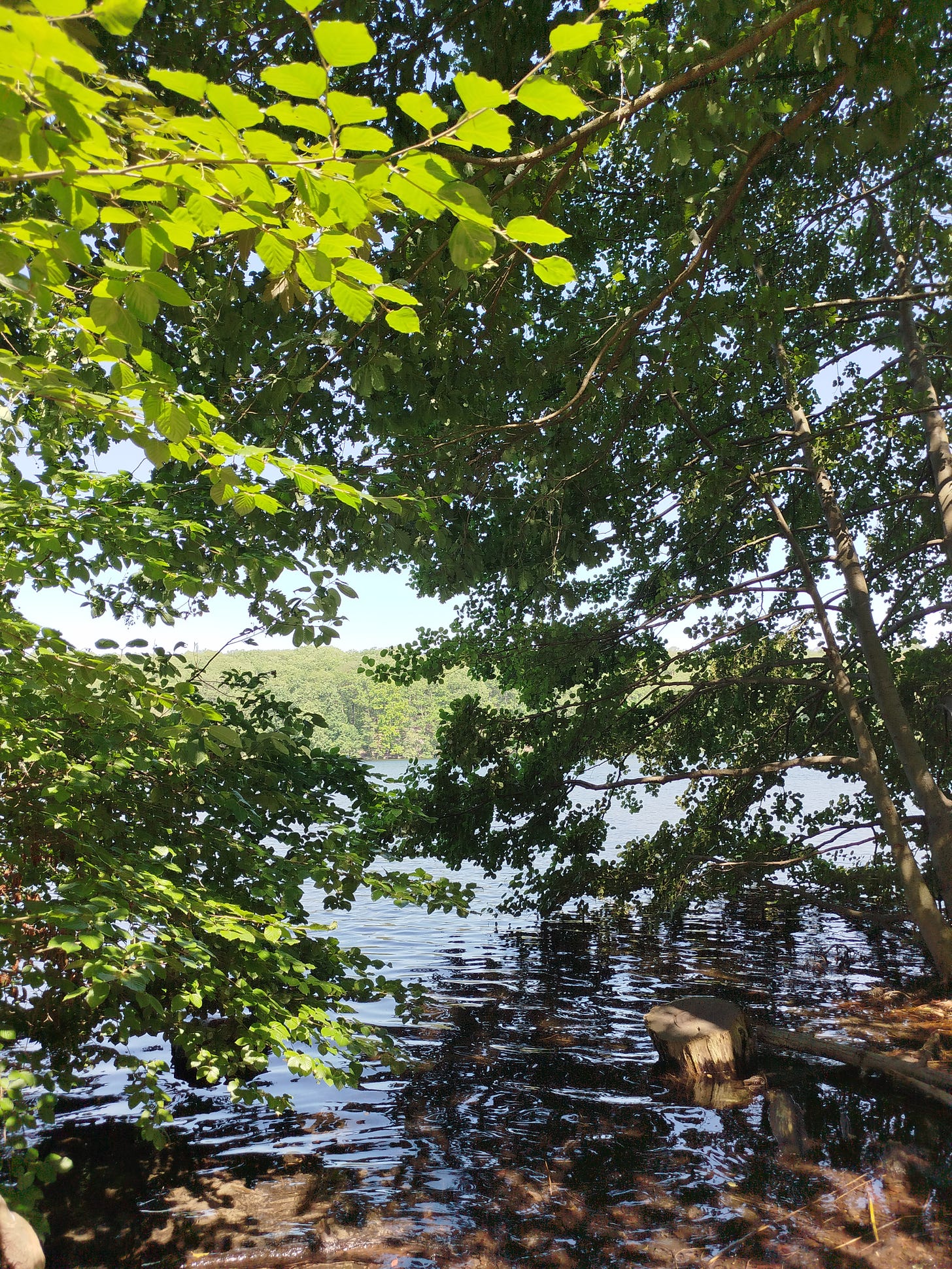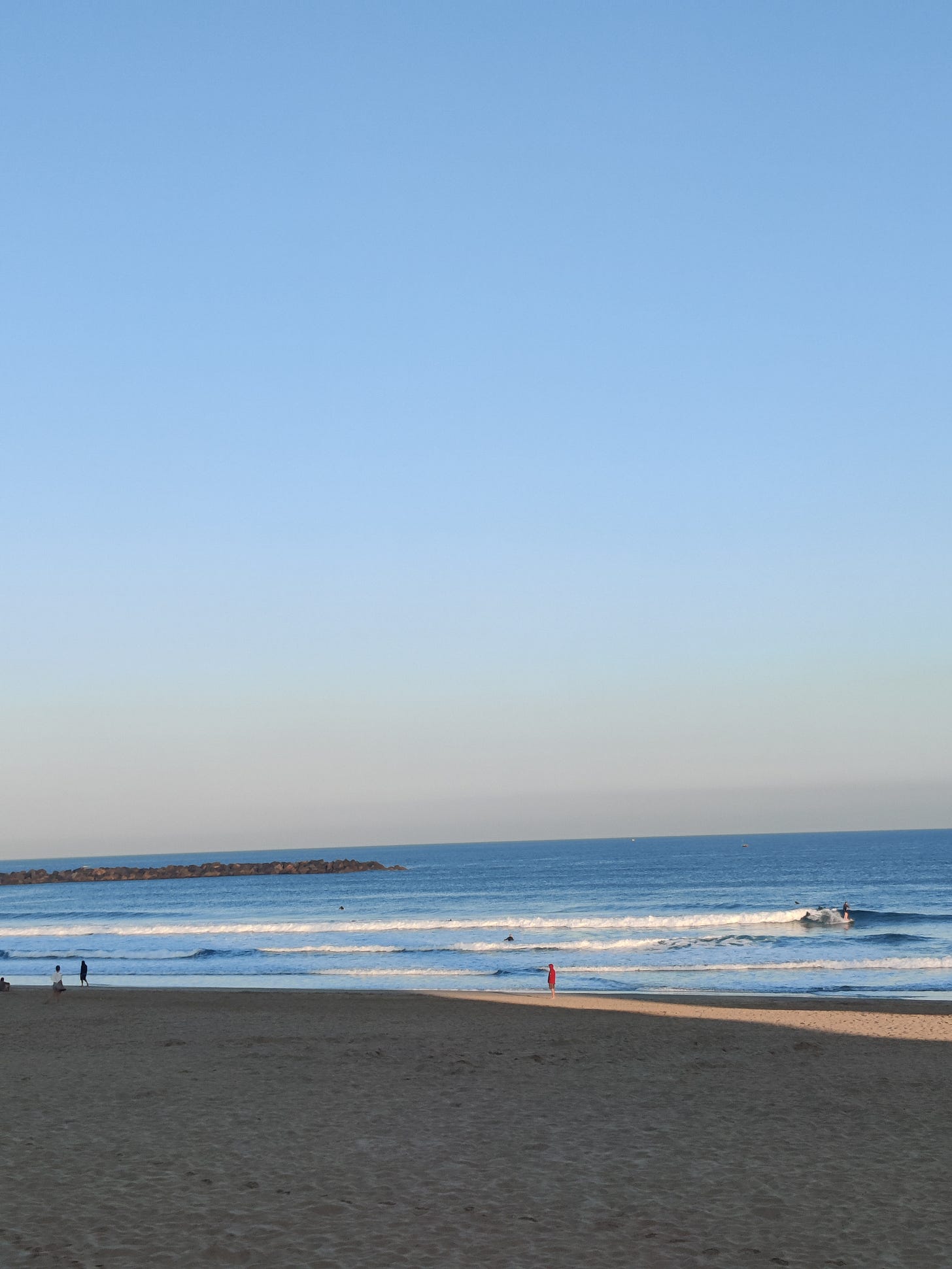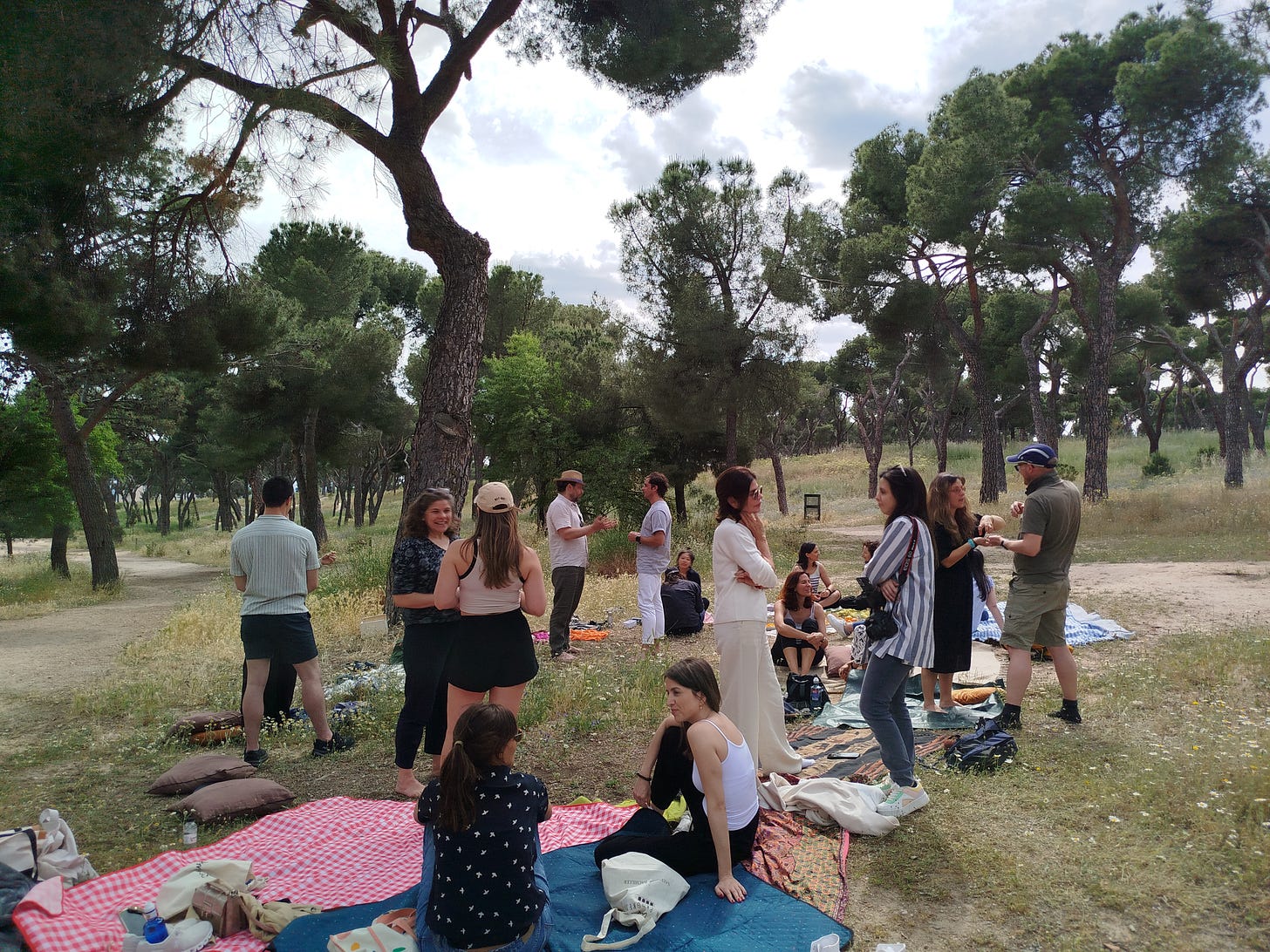How Nature Teaches Us to Ease Loneliness
Exploring Nature-Based Activities, the Anthropause, and Rewilding
“Honestly, nobody wants to talk about loneliness.”
I felt a pinch in my chest, gradually, then suddenly feeling very small. It’s not the first time someone confronted me with their honest opinion on framing my work around such an uncomfortable, shameful topic, and yet, it gets me every time. “Why don’t you just flip it on its head and say it’s about belonging?“ “Or make it about friendship?” “Can we say alone and not lonely, it sounds so bad.”
While I know they’re coming from a place of goodwill and support, I intuitively chose not to limit, sugarcoat, or package what I believe is the underlying cause of our individual and collective alienation from ourselves, each other, and everything around us. Loneliness is more than what each of us might associate, and that’s what makes it precisely a universally shared experience.
A deeply human one—although I should say, a natural one. We are not alone, some animals feel lonely, too.
A study by renowned social neuroscientist John T. Caccioppo, suggests that loneliness is a common reaction when there’s a mismatch between their preferred and actual social connections, which can be observed across various species, indicating an evolutionary basis for this experience.
For example, one type of monkeys that prefer close partnership experienced a significant stress response after being isolated from their partners for an hour. A different kind of monkey who is less focused on single partners didn’t show this stress response.
So if loneliness is part of our nature, might nature itself help us cope with it?
The short answer is yes, to some extent. Research shows, that nature-based activities include fostering social connections, enhancing wellbeing, and providing a sense of purpose and fulfillment.
One of the most prominent ongoing research initiatives is called RECETAS (Re-Imagining Environments for Connection and Engagement: Testing Actions for Social Prescribing in Natural Spaces). Led by ISGlobal, researchers across six cities, Barcelona, Marseille, Prague, Helsinki, Cuenca in Ecuador, and Melbourne in Australia, are creating neighborhood groups of people to get together in nature spots. Whether a hike in the mountains, sitting by the lake, community gardening, forest bathing, having a BBQ in the park, or playing sports outdoors, research shows nature can contribute to overall mental health. Especially in overcrowded cities of today, contact with nature, more trees, parks, and rivers can help us feel less lonely.
Every time I’ve hosted an outdoor gathering in the past, including the latest one in the most beautiful park, Dehesa de la Villa, in Madrid, I noticed how much more light-hearted people arrived and engaged from the beginning, versus coming into a space, even if it’s an open and beautiful space.
(By the way, next up is a 🌳 community picnic at Viktoriapark in Berlin on Sunday, July 21, if you happen to be there!)
The fact that there’s a ceiling and walls somehow makes everything shrink a little. The fresh air and surroundings of birds, insects, trees, and other more-than-humans subconsciously make you more aware and less focused on yourself, and the way you ought to behave. There’s something about nature being a leveler for all kinds of people, it’s inviting in a way that allows those, for example, who are more on the introverted side or neurodivergent, to land a big more gently.
Maybe, because open-air spaces are less socially codified than indoor ones that are never neutral, and if they are bland as vanilla aesthetic on Instagram, they also come with a certain expectation of how to be and who is(n’t) welcome.
Nature, however, doesn’t discriminate. It embraces you as a part of it all, which might be the piece we’ve been missing all along. We’ve been taking its ecosystems for granted, and now are experiencing the consequences of the idea of being separate from, or even superior to life and everything that supports livelihood.
So as we’re looking toward how nature might support us in coping with loneliness—how might we crawl up to nature, literally, and heal our relationship with it?
After all, realizing that separation itself is a toxic narrative and that surrendering to the interconnectedness of everything might transgress the idea that individualism rules over relationships and community.
Individualism is a human-made idea, while relationships and community are not.
Nothing in nature comes into existence and sustains itself alone.
Even a single tree in the vastness of a desert will have adapted itself to source water from the soil, seasonal rains, or even dense fogs. Every time I learn something new about nature, I’m awed by how intricately and sophisticatedly it’s created. It makes me laugh about how obnoxiously arrogant we humans are sometimes when thinking about our oh-so-advanced intelligence.
Speaking of awe, one of the eight ways to experience it is, of course when we are in nature, as I learned from my friend
, the co-founder of the . Many of my core awe moments involve nature—a double rainbow, my first moon rise, skinny dipping at midnight, and the smell of the forest I grew up next to.The experience of awe in nature in particular strikes me as one that seems such a low-cost, accessible way of helping us in navigating our individual and collective loneliness. It starts with truly connecting with ourselves, and the ability to be comfortably alone without a phone that distracts us, or someone beside us because “we can’t be alone”. It’s something I’ve been working on over the past years, and in nature, looking around, noticing, and taking life itself in, I never truly feel lonely.
Do you remember when nature took over early into the pandemic? Referred to as the “Anthropause,” we saw air and water quality improve, noise pollution decrease on land and under the sea, and human-disturbed habitats begin to recover. I remember seeing how wildlife returned to Venice and feeling the birds sang louder than before, perhaps because they didn’t have to come against the noise of chatter and cars. In response to this, a Barcelona string quartet performed a concert for an audience of nearly 2,300 potted plants.
Of course, this was truly a pause rather than a shift.
What if we, in turn, started renaturing—or rewilding even? What could start from a walk in a park or running along the water, we might slowly find a way for each one of us to heal our relationship with nature itself, whether it’ll be through growing our food on a small patch of an urban gardening community, overcoming our inner skeptic and trying a forest bath, going out mushroom foraging, with experts like my sister, or taking a scuba diving course to swim with sharks as my friend did in South Africa this year, which deeply moved her way of seeing the (underwater) world.
Ultimately, loneliness is in our nature, but so is our capacity for connection.
By embracing the natural world, we might rediscover the interconnectedness that can ease our individual and collective loneliness.
Want to share about your connection to nature? I’d love to hear about it in the comments.
With gratitude and love,
Monika






